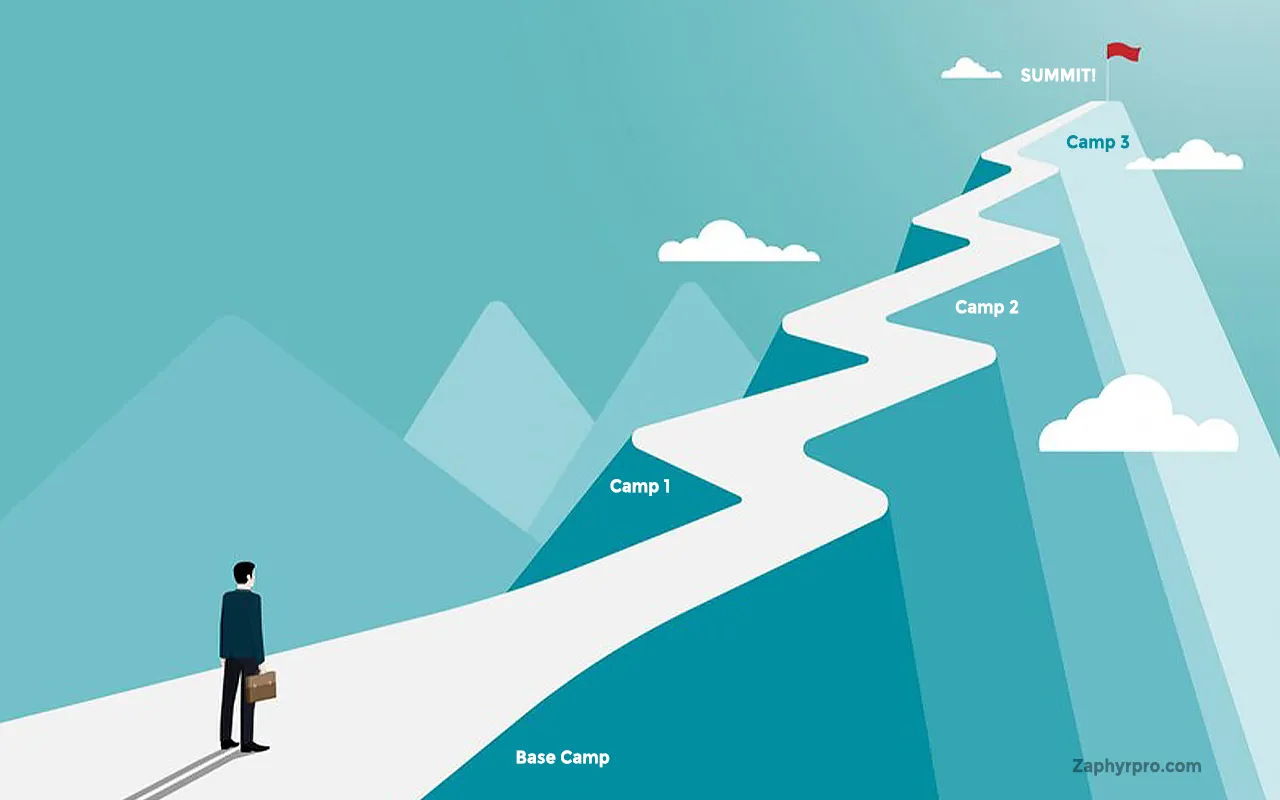Managing Team Performances
Greetings! I hope this article finds you energized and ready to embark on another month of exciting challenges and opportunities. Today, I want to delve into a topic that lies at the heart of our collective success: managing team performances.
Our ability to nurture and unleash the potential within our teams can be a catalyst for extraordinary achievements at a company and individual level. Most of it is dependent on how we create an environment that fosters high performance and propels us towards excellence; in ambitions, in objectives, in values, and in delivery!
My dad throughout my early years always pinched me to read books, I never did. I realized only recently how reading (and applying what you read) can help in organizing perspectives that may have been there but were hidden in plain sight or were absent altogether. The other day, I went through my dad’s bookshelf and found myself grabbing at least 3 books. It did feel a little unnatural and my dad was obviously shook, but it also felt good to think of myself as a keen learner.
One of the 3 books that I picked from my dad’s collection is a groundbreaking publication; “First, Break All The Rules: What the World’s Greatest Managers Do Differently” that challenges conventional wisdom and redefines the very essence of effective leadership. The book is based on extensive research conducted by the Gallup Organization, where the authors interviewed over 80,000 managers in various organizations to identify the practices that differentiate great managers from the rest, and I believe it holds immense value for our company. In this article, I will talk about some key concepts from the book, as well as some of my own logic to highlight their relevance and provide you with a toolkit for enhanced performance. If you decide to give the book a read, I highly recommend it!
One of the most crucial concepts is the notion of “Great Managers.” Exceptional leaders focus on individuals, understanding that every employee is unique and has different strengths. By leveraging this insight, they foster engagement, drive performance, and create an environment that nurtures the growth of each team member that results in collective success.
People management has long been looked at from a supervision and control perspective. Whether that sense comes from what we heard about other peoples’ professional careers, or from a perception of a workplace where supervisors are supposed to do the rounds, check on employees reporting in on time, not taking extra breaks, punching in the numbers, and applying consequences when there is non-compliance with the rules. Accountability is an important aspect of being a manager but it does not define management.
In contrast, managing team performances is more so an art that requires a delicate blend of leadership, communication, empowerment, and continuous development. It’s not about mere supervision or control, but rather about creating a space where individuals can thrive, collaborate, and collectively accomplish great things. In today’s agile environment businesses want to focus on self reliant, self-motivated and self directed teams. More and more people feel that managers are not needed and managers come in the way of fast paced, and flexible teams. That is mostly because the role of a manager is not often correctly understood by most of us. If a manager’s role is signing approvals, monitoring performances and shuffling papers, managers may not be needed as much. However, that’s far from what great managers do.
Here are 4 essential roles that any great manager should focus on:
- Selecting the person: for talent and not only their expertise, intelligence and determination
- Setting expectations: by outlining clear outcomes and objectives
- Motivating the person: by focusing on strengths and polishing skills
- Developing the person: by finding the right fit and setting up a trajectory that resonates
Now, each of these roles, though simply stated, have much more detail that managers need to know to be effective and in putting together and leading top performing teams. Here are some key principles and strategies to help us unlock the full potential of our teams.
1. The Mountain Climb:

Consider the role of every individual in the company as trying to summit a mountain. In doing so, there are camps along the way each of which hold high importance and only when you successfully reach a camp you get closer to making the summit Reaching and staying at a camp would require you to answer a set of questions positively to summit the mountain. New employees no matter what role start at base and tenured employees at different stages in their careers can come back to base, camp 1 or camp 2 if any of the questions start to lack clarity. Here are 12 questions that need to be answered positively for a successful summit:
- Do I know what is expected of me?
- Do I have the right tools to do my work?
- Do I have the opportunity to do what I do best?
- In the last 7 days have I received praise for good work?
- Does my supervisor seem to care for me as a person?
- Is there someone at work that encourages my development?
- Do my opinions count?
- Does the mission at my company make me feel my job is important?
- Are my co-workers committed to doing quality work?
- Do I have a best friend at work?
- In the last 3 months has someone talked about my progress?
- During the last year have I had opportunities to learn and grow?
SUMMIT!
Great managers when they work with individuals on their team take aim at satisfying the needs of Base Camp and Camp 1. They know that the core of a strong and vibrant workplace can be found in those 6 questions.
2. Cultivate a Visionary Mindset:

High-performing teams are fueled by a shared vision that inspires and aligns everyone towards a common purpose. As leaders, it's our responsibility to articulate a compelling vision and communicate it effectively to each team member. Paint a vivid picture of the desired future and instill a sense of purpose that ignites passion and enthusiasm.
For instance, imagine a scenario where our customer support team envisions a world where every customer's query is resolved with utmost care and efficiency, transforming them into loyal brand advocates. Such a vision can inspire our team members to go above and beyond, delivering exceptional customer experiences and creating lasting relationships.
3. Foster Psychological Safety:

Creating an environment of psychological safety is paramount for high performance . Team members should feel comfortable taking risks, expressing ideas, and learning from mistakes without fear of judgment or repercussion. Encourage open dialogue, active listening, and respect for diverse perspectives. By embracing different viewpoints, we expand our collective intelligence and drive innovation.
Consider a situation where a team member proposes a bold idea that challenges the status quo. Instead of dismissing it outright, fostering psychological safety would encourage thoughtful exploration and constructive discussions around the idea. This not only stimulates creativity but also enhances trust and empowers individuals to unleash their full potential.
4. Develop Talent and Nurture Growth:

Recognize that each team member possesses unique talents and aspirations. To achieve high performance, it's essential to invest in their professional development and create growth opportunities. Identify their strengths, align tasks accordingly, and provide avenues for skill enhancement. Encourage continuous learning through training programs, mentorship, and cross-functional collaborations.
Imagine a scenario where a team member expresses interest in honing their project management skills. By offering them targeted training and assigning them to a challenging project, we demonstrate our commitment to their growth. As their competence flourishes, their impact on the team's performance and overall success increases exponentially.
5. Encourage Collaboration and Accountability:

High-performing teams thrive on collaboration and mutual accountability. Foster a culture that values teamwork, knowledge sharing, and collective problem-solving. Encourage cross-functional collaborations, where individuals with diverse expertise come together to tackle complex challenges. Set clear expectations and hold team members accountable for their commitments, while also celebrating collective achievements.
For instance, visualize a scenario where two departments join forces to develop an innovative solution that surpasses their individual capabilities. By recognizing and celebrating their collaborative effort, we reinforce the importance of collective success and inspire others to follow suit.
6. Continuously Evaluate and Adapt:

To ensure sustained high performance, we must embrace a culture of continuous evaluation and improvement. Regularly assess team dynamic, identify areas for enhancement, and adapt strategies accordingly. Solicit feedback from team members and encourage them to actively participate in the team's evolution. Learn from both successes and setbacks, adjusting our approach to align with emerging opportunities and challenges.
Imagine a situation where we encounter unexpected market shifts. Instead of becoming complacent, a high-performing team engages in proactive evaluation and adaptability. They quickly identify new trends, recalibrate their strategies, and seize the emerging opportunities, ultimately staying ahead of the competition.
Essential takeaways that are keys to unlocking your full management potential:
- Great managers know well about the following essentials:
- When selecting someone, select them for talent
- When setting expectations, define the right outcomes
- When motivating someone, focus on their strengths
- When developing someone help them find the right fit
- Employee retention and productivity over an extended period of time is determined by an individual’s relationship with their immediate manager or reporting authority.
- Encourage team members to be more of themselves. Don’t try to change people. Instead, plan on what they can, or already, do very well. Team members should capitalize on each other's strengths to reach common goals.
- If you expect the best from people , they’ll give you their best. Encourage, motivate and get your teams to focus on the right things
- Don’t over-promote people ahead of time, recognize what they do well and then pay them well to do it and make it rewarding.
- Anything important to the growth of an organization should be measured. Learn to read data, look for recurring patterns and trends both positive and negative. Work your way on items on both extremes and reach the middle.
- If you know exactly how you achieved the success you have today, you’ll be able to guide others to achieve the same level of success. Inspire yourself and then inspire others by helping them win. Take pride in growing others.
By embracing these principles, we unlock the power within our teams and create an environment where excellence thrives. Let's continue to inspire, challenge, and empower one another to reach new heights of success.










